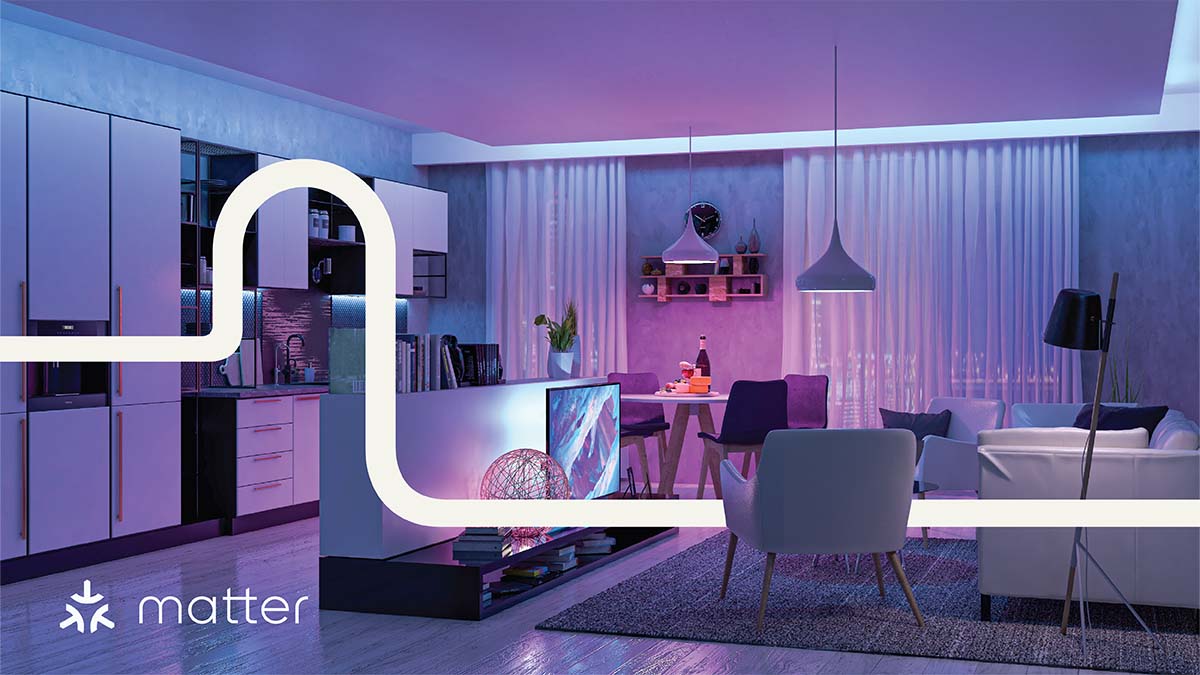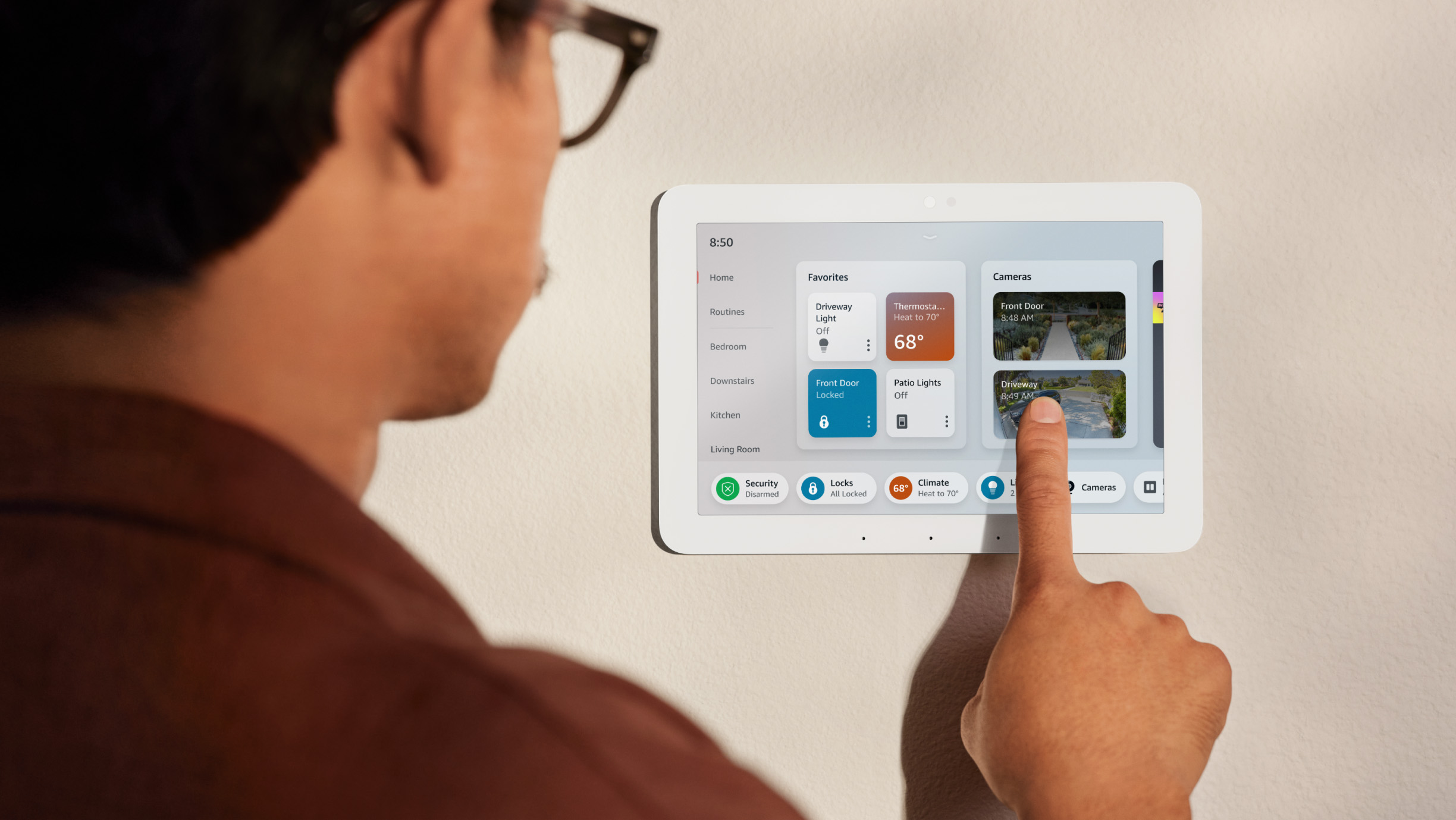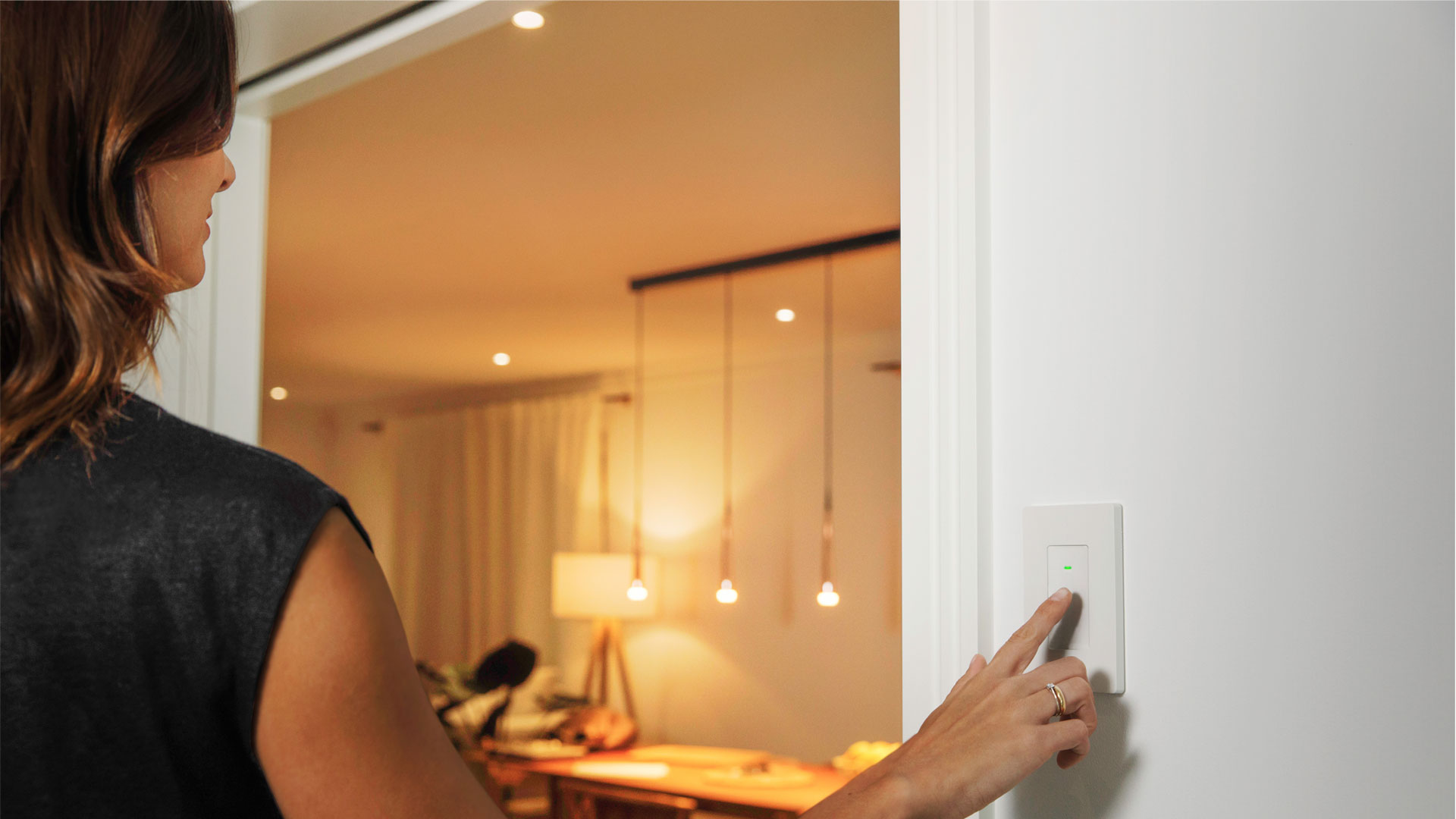In the smart home of 2023, it turns out Matter simply doesn't matter
Nobody's talking about the smart home tech everyone was talking about

At a splashy event to unveil new smart home devices on September 20, the single biggest name in smart home tech wasn’t talking about the biggest innovation in smart home tech. The world’s biggest smartphone maker didn't at its recent event either, nor did the second biggest. And the undisputed king of the web, the company whose browser, phone, or search engine you’ve probably used in the last 15 minutes? Nope, nada.
The Matter connectivity and interoperability standard was launched with great aplomb in November by Amazon, Apple, Samsung, Google, and hundreds of other companies. It’s designed to solve the issue of connectivity among smart home devices and platforms once and for all, offering a single communication protocol that everything, and I mean everything, was supposed to work with. Supposed to, anyway.
Yet In the year since the smart home standard was released, adoption has ground to a halt, and improvements and iterations on the standard have not materialized. In early September, I met Chris La Pre at the enormous IFA consumer electronics show in Berlin. Chris is head of technology for the Connectivity Standards Alliance (CSA), which steers the Matter standard and herds the cats responsible for its development. He acknowledged that, while there are about a thousand “certified” devices listed on the CSA site, there are perhaps 30 on the market today. And that includes the dozen hubs sold by Google and Amazon.
Apparently, Matter simply doesn’t matter.
The incredible, invisible standard
At its “Wonderlust” event last week, Apple launched three new iPhones with USB-C, two new Watches, and the new iOS 17 software. It made exactly no mention of the spec it helped create. The iOS 17 software, which will power approximately 1 billion smartphones, has no new Matter features; indeed, the official guide Apple released for reviewers doesn’t mention it at all.
At a big event in Seattle on Wednesday, Amazon unveiled a slew of new smarthome products: new Eero routers, new Blink security devices, new FireTV gear, and a new Echo Hub smart home controller. It glossed over Matter, mentioning the standard twice in the hour and a half event. It was unclear whether the Hub even supports it: Amazon said only that it supports Thread. (Yes, they’re different – another reason this is all so confusing.)

The CSA team has released exactly zero Matter press releases since it limped to market in Amsterdam with a few dozen products in November 2022.
Sign up for breaking news, reviews, opinion, top tech deals, and more.
At IFA 2023, Samsung took over an entire building called the CityCube. Inside, I found demos of dozens of smartphones, home appliances, mention of 6G, and even a collaboration with a creative studio called Toiletpaper (really!). But there was no mention of Matter.
Google’s blog hasn’t mentioned Matter since last December, when the spec was finally supported on Nest devices… well, some of them anyway. The vast majority of Nest thermostats, the brand’s most popular products, which are installed in millions of American homes, don’t support the standard due to technical challenges and likely never will.
“You’ll see a few Matter devices in stores this holiday season, with many more coming in early 2023,” Google optimistically wrote nine months ago. “Just look for the new Matter badge to spot what products are Matter-enabled.” At IFA 2023, thousands of square feet of show floor displayed countless new washing machines, blenders, TVs, and tech products of all colors and shapes. And Matter was almost nowhere to be found.
A company called Midea did launch a Matter-enabled dishwasher, and Philips Hue finally announced support for Matter, as well as some cameras that the company says will support an extended version of the spec down the road. But for the most part, those badges were nowhere to be found.
Invisible on purpose
Matter’s invisibility is partly by design: thanks to cross-brand compatibility with the spec, everything is supposed to just work. Your light bulbs and doorbells will talk to your security cameras and stereo seamlessly and smoothly. Hence there’s no need to market or even mention the spec. If it’s Matter, it’ll work. In reality, Matter devices today rarely speak to each other, instead requiring a hub like the Samsung Station or a Google Nest Hub.
And the CSA noted that standard is built to allow founding companies like Google and Apple to endorse their own platforms, rather than a Matter smarthome app. The end of the Google Blog post from last December is telling, handily advising you that “to make sure devices from other brands have been tested to work well with Google devices, also look for the Works With Google Home badge.”
With no visibility to consumers – no app on your phone, no settings in your iPhone or Android device, no options to tick in Windows, no logo anywhere in the Windows, iOS, or Android software – Matter is purely behind the scenes.
A few words about lightbulbs
Jennifer Pattison Tuohy, a smart home reviewer for The Verge, wrote about “the lightbulb moment” at IFA 2022, when she saw a Google Nest Hub control an Apple HomeKit smart plug. Indeed, many of the devices currently on the market and “compatible with Matter” are lightbulbs. And It’s a shame that smart home developers, standard makers, and reviewers are so fixated on with lightbulbs.
Michele Turner, Senior Director of Google Smart Home Ecosystem, told me last year that "we have a saying at Google. If it's not as fast and reliable as a light switch, why are you doing it?"

Thing is, lightbulbs don’t smarten well. Wall switches are easy to understand and work instantly; anything less than that feels crummy. Couple the fact that turning off the wall switch cuts power to a smart light bulb, rendering the smart features useless, and you’ve got a recipe for disaster.
In June, I met with smarthome giant Vivint, which was unveiling a new series of smart lights; the company’s controls simply mount over and disable the existing physical switch – a surprisingly elegant solution to the problem. Vivint Smart Lighting supports the Zigbee standard but not Matter. And Chief Product Officer Jim Nye and COO Rasesh Patel described a "wait and see" approach to Matter. It seemed to me that the waiting would last quite a while.
It’s hard to see how that approach differs from the one Google, Samsung, Amazon, and Apple are taking. With no momentum, is the dream of the unified smart home collapsing before it ever began?
You might also like
After 25 years covering the technology industry, Jeremy Kaplan is a familiar face in the media world. As Content Director for TechRadar, he oversees product development and quality. He was formerly Editor in Chief of Digital Trends, where he transformed a niche publisher into one of the fastest growing properties in digital media. Before that, he spent half a decade at one of the largest news agencies in the world, and cut his teeth in magazine business, long before the birth of the iPhone. In 2019, he was named to the FOLIO: 100, which honors publishing professionals making an industry-wide impact.